Laser Skin Resurfacing
in Rogers, Bentonville, Fayetteville, Springdale Arkansas
Laser Skin Resurfacing uses the energy of a laser to obtain an improvement in the quality of the skin. Many patients often see improvement in skin elasticity, resulting in tighter and more youthful skin.
Reasons to Consider Laser Skin Resurfacing
- Tighten loose skin
- Reduce or eliminate facial wrinkles and lines
- Improve sun damage
- Treat various skin concerns, including acne scars, birthmarks, moles, pigmentation variations, etc.
How will I be evaluated for laser skin resurfacing?
Our doctor will carefully examine your skin to determine which resurfacing technique or combination of treatments will provide you with the best results. Your skin type, the severity of any sun damage, the extent of uneven pigmentation and the depth of skin imperfections will be evaluated. Fine lines, coarse wrinkling or deep acne scarring each may require a different approach to treatment.
You should come to the consultation prepared to discuss your medical history. This will include information about any medical conditions, drug allergies, medical treatments you have received, previous surgeries, and medications that you currently take. Be sure to tell our physician if you have ever had x-ray treatments of your facial skin such as those used in the treatment of acne, or whether you have had a prior chemical peel. If you have recently used Accutane, Retin-AT or other topical skin preparations, you must tell your surgeon, as recent or current use of these items can result in heavy scarring. For your safety, it is important that you provide complete information.
How is Laser Skin Resurfacing performed?
Laser skin resurfacing uses an erbium laser to soften lines, minimize scars and soften uneven pigmentation. The laser removes damaged or wrinkled skin layer by layer, using a precisely controlled level of penetration. Laser skin resurfacing procedures vary widely from patient to patient; they can be used to treat large areas or specific spots, and treatment can penetrate deeply or only superficially depending on the needs of the patient.
The procedure itself can last anywhere from a few minutes to just over an hour depending on the treatment area, and may require more than one session to achieve the desired result. Unless combined with a procedure that requires hospitalization, laser skin resurfacing is an outpatient procedure performed under local or general anesthesia.
The effect of the procedure will gradually become apparent, as new skin grows and collagen production is stimulated. Your new skin will have a tighter, smoother, younger-looking appearance.
What to Expect with Laser Skin Resurfacing
Medications will be administered for your comfort prior to the treatment. Frequently, local anesthesia and mild sedation are used for patients undergoing skin resurfacing procedures. General anesthesia is possible if desired.
When the treatment is completed, your resurfaced skin may be covered with a protective ointment. In some cases, dressings, tape or a bandage may be applied. Your skin will have some redness in the weeks following the procedure, and most patients must wait at least one week before applying makeup to conceal this temporary coloration. The more aggressive the treatment, the longer the recovery will take.
Most patients return to work in two weeks, but it is usually necessary to refrain from more strenuous activity for four to six weeks. Redness may take up to six months to fade completely. It is very important to protect the treated area from the sun until all pigmentation has returned. This can take as long as one year, and if you must be in direct sun during this period, strong sunblock with at least an SPF of 30 should be applied; shade sun hats are also recommended. In the long term, using proper sunblock will ensure that your final result lasts longer.
How long will results last?
The results of laser skin resurfacing are long-lasting, but the procedure does not stop the aging process. Over time, new wrinkles and fine lines will form in the skin.
Schedule your consultation to find out if laser hair removal is right for you. For more information regarding this procedure or others, visit the FAQ page.








